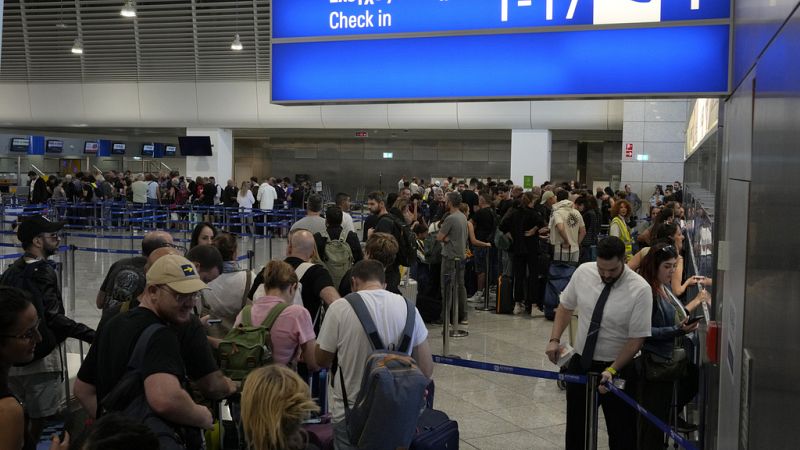Athens Airport hit by delays after air traffic controllers limit the number of flights per hour

Passengers travelling to or from Athens International Airport are almost certain to face delays as air traffic controllers have limited the number of flights they manage per hour.
Last Friday, the airport's Air Traffic Controllers announced that they would be restricting the number of takeoffs and landings at the airport due to a heavy workload. They have said that they will now be handling a total of 28 arrivals per hour, down from a peak of 36 during the summer season.
In practice, this translates into delays of between 20 minutes and 2-3 hours for each flight.
Aegean Airlines said on Friday that the decision had reduced arrival capacity by around 25 per cent, causing morning delays of 30 to 40 minutes that lengthened as the day progressed.
Passengers are advised to contact their airline before they fly to check the status of their flight.
Tension between unions and the government
This summer, Athens Airport was the focus of criticism from Ryanair chief executive Michael O'Leary over delays and outdated systems.
The decision by air traffic controllers has caused tension between the workers' union and the government, with Greece's infrastructure and transport minister saying the salaries of ATC workers were already high.
The union called it a "disorienting tactic at a time when our salary costs are 33rd out of 38 countries".
The Greek Minister of Transport and Infrastructure, Christos Dimas, stressed that delays are even worse at other European airports and added that a 364-point, 7-pillar action plan is being implemented in cooperation with the European Commission, with regular progress reports every six weeks.
One of the pillars concerns the transformation of the Greek Civil Aviation Authority (CAA) into a legal entity under public law in order to give it greater administrative autonomy.
"Currently, the CAA is an autonomous agency reporting directly to the Minister. This means that for matters even of everyday life, such as cleaning or maintenance, a ministerial signature is required. These now cease to exist," he said.
Air traffic controllers 'disappointed' by negotiations
"We were disappointed, but unfortunately not surprised, to hear the statements of the Minister of Infrastructure and Transport," the air traffic controllers said in a statement.
They point out that, apart from a meeting in early May at the Ministry and one in early June at the CAA, they have not met with the minister again. On 1 September, they requested another meeting but haven't received a response.
"It is also completely misleading to refer to the amount of our salary in a way that even artificially inflates the figures so that they have no relation to our net earnings, which (as the Minister admits) are taxed and do not burden the budget, while they are paid by airspace users and 90 per cent of them come from foreign airlines," the union said.
They stress that "the Greek taxpayer does not pay a single euro", while the fees are financed by the air navigation charges paid by the airlines.
Based on Eurocontrol's data (ACE Benchmarking report 2025) for 2023, Greek NOCs rank 33rd out of 38 providers in terms of payroll cost per flight hour, while they are fifth in terms of productivity.
They point out that they are more productive than countries such as Germany, Spain, Switzerland and Italy, while their wages remain lower than even countries such as Bulgaria, Romania, Croatia and Slovenia.
At the same time, the Hellenic Aviation Service Provider (HASP) is the cheapest among 38 providers in terms of the cost of providing air navigation services.
"Unfortunately, the attempted misdirection demonstrates that the scale of the real problem facing the HASP, which is not the fees, has not been understood," the union added.
"Unless the Minister believes that the lack of modern systems or the breach of European Regulations is the fault of the fees of the HASP."
Today

